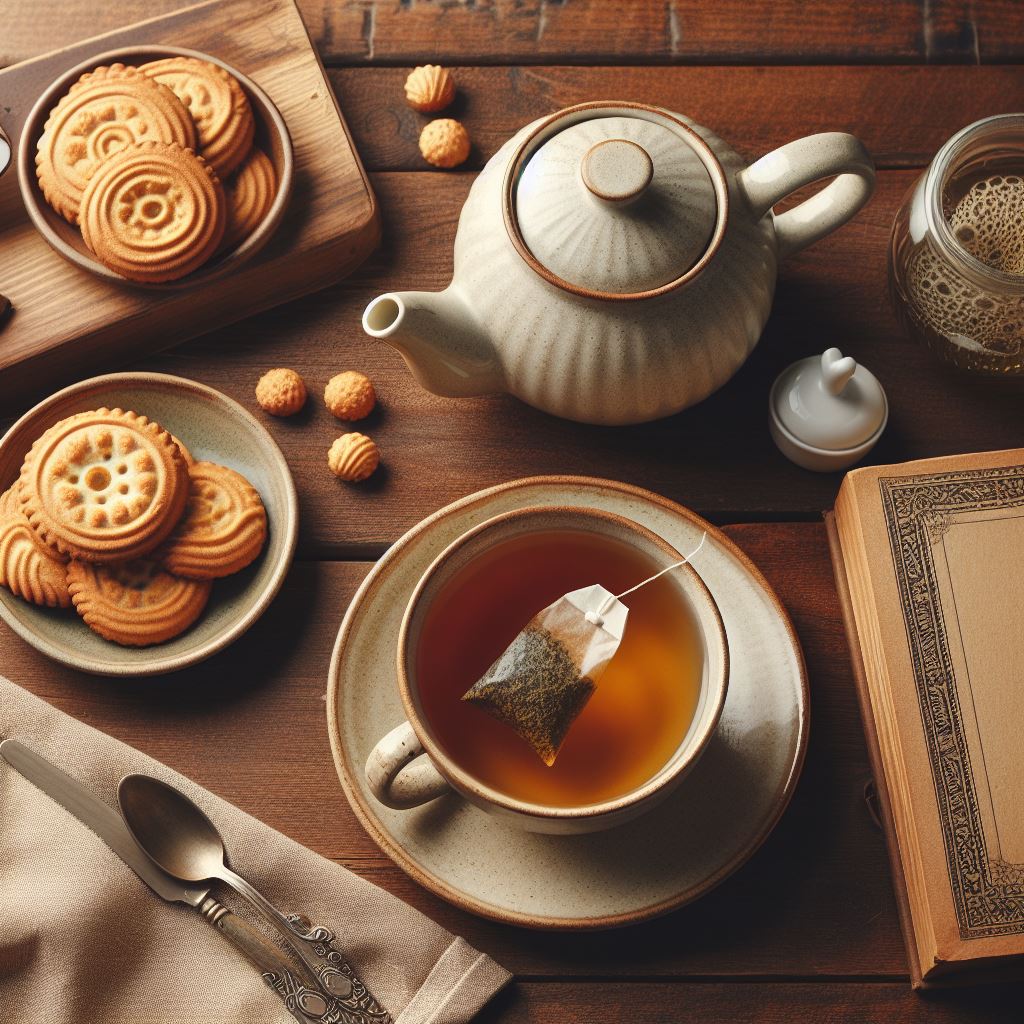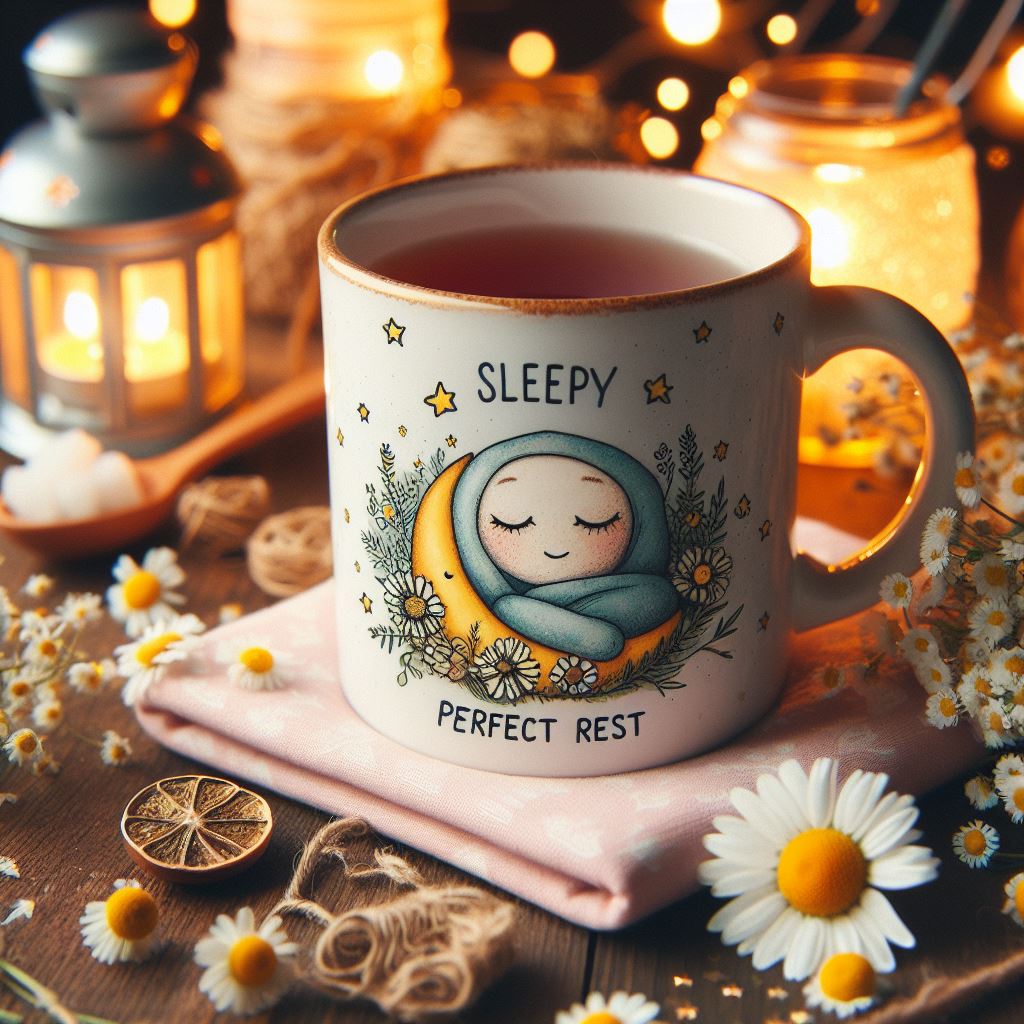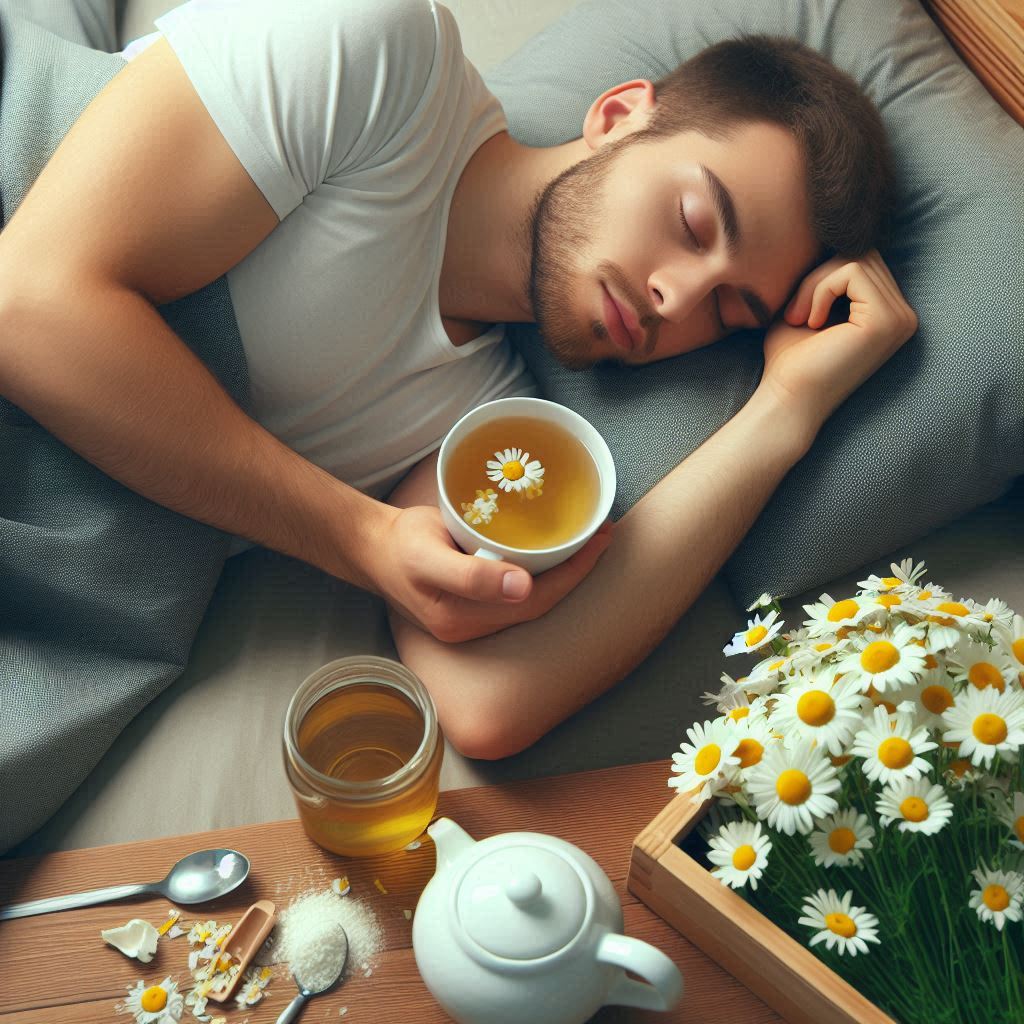Chamomile Tea
Chamomile for Sleep: Does this Bedtime Tea Truly Work?
Chamomile for Sleep: Does this bedtime tea truly work?
The Question In Detail.
For centuries, chamomile tea has been a bedtime staple, praised for its calming properties and sleep-inducing magic. But does this floral infusion actually live up to the hype? In this article, we’ll delve into the science behind chamomile and sleep, explore its potential benefits, and answer the age-old question: can chamomile truly help you drift off to dreamland?
The Calming Power of Chamomile:
Chamomile boasts a unique compound called apigenin, an antioxidant that interacts with receptors in the brain similar to some anti-anxiety medications. This interaction may promote relaxation and reduce feelings of restlessness, paving the way for a more peaceful sleep.

Research and Results:
Studies on chamomile and sleep offer promising, yet inconclusive, results. Some research suggests chamomile may improve sleep quality in individuals with mild anxiety, while others haven’t found a significant impact on sleep duration. However, many users swear by its calming effects, highlighting a potential placebo effect that shouldn’t be disregarded.
Brewing Your Way to Better Sleep:
- Steep: Pour hot water (not boiling) over 1-2 teaspoons of dried chamomile flowers.
- Relax: Let it steep for 5-10 minutes, allowing the calming compounds to release.
- Sip and Savor: Enjoy your tea warm, ideally 30-60 minutes before bedtime.
Beyond the Mug:
For a more immersive experience, consider incorporating chamomile into your bedtime routine:
- Create a Calming Bath: Add a chamomile tea bag or a few tablespoons of loose flowers to a warm bath for a relaxing soak.
- Aromatherapy: Inhale the gentle aroma of chamomile essential oil diffused in your bedroom.

Important Considerations:
While generally safe for most people, chamomile can interact with certain medications.Consult your doctor before using chamomile if you have any underlying health conditions or are taking prescription drugs.
Chamomile: A Sleep Aid or Soothing Ritual?
The science on chamomile and sleep is still evolving. While it may not be a guaranteed snooze potion, chamomile’s calming properties can certainly contribute to a more relaxing bedtime routine. So, whether it directly impacts your sleep cycle or simply provides a soothing ritual, a cup of chamomile tea might be the key to unlocking a more peaceful night’s rest.
Optimizing Your Sleep Environment:
Remember, good sleep hygiene goes beyond a single beverage. Here are some additional tips to create a sleep-conducive environment:
- Establish a Regular Sleep Schedule: Go to bed and wake up around the same time each day, even on weekends.
- Create a Relaxing Bedtime Routine: Wind down with calming activities like reading or taking a bath before bed.
- Optimize Your Sleep Space: Ensure your bedroom is dark, quiet, and cool.
- Limit Screen Time Before Bed: The blue light emitted from electronic devices can disrupt sleep patterns.
By combining chamomile tea with good sleep hygiene practices, you can create a powerful sleep-promoting routine that helps you drift off to dreamland and wake up feeling refreshed. Sweet dreams!




